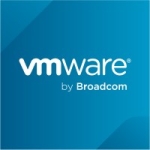My primary use case is for EIMS (Enterprise Information Management Systems). We run this in the night time, and every day in the morning. Then the reports are readily available, so there is zero failure.
This improves the way our organization functions because it is on X86 machines. The X86 machines and also because the internal fiber channels are internally integrated, but while you want to have it in the network because integrating with the network, that is the external network(the tape drives and all). Those things are really cumbersome.
The reports are always readily available. The backup solution that is the data file system is available for a 30 day insert. There is really no other software solution that gives us the same quality backup and restoration like this.
We have had issues with system restoration. If there is a system fail, the internal drives are useless. We need Exadata to integrate with that one, and to restore it back. But there should be something in place in case of system failure. One of the systems should have the facilities to troubleshoot from the other nodes to this note remotely. Or, even if not remotely, just to troubleshoot at least among the thrusters.
There is no system collectively. Let us say this system failed; do we have any disks? Total disks, let's just say 100 disks. Five disks are failed. 100 disk measuring is not data top. If mirroring is that, like we can HRCMR. Let's say IBM CRM are CTC shadow image, REMC like that, the storage level they are giving the facilities inserted data mirroring, so immediately we can bring the DR. But internally, the Exadata doesn't have such features. Maybe they can think through that mirroring of collective system. Insert automatic measuring. If we have a collective recovery, let's say system-to-system, that DR solution, though they are giving a data guard, we have to set it up into the second system and the Data guard is a software solution. There is a really high skill required for a DBA to bring up the database. So a non-skilled person, like the storage engineer, can bring up for shadow images. HRCMI, HRCMR, like that. But in the case of Oracle, you must be really specialized to to bring up the data guard.
In addition, they should insert automatic measuring. AM is, let's say, one table fail. Okay, you can recover it. Or one disk failed, then they can troubleshoot it. But automatic recovery, fine, but if we have a collective recovery, let's say system-to-system, that DR solution, though they are giving a data guard. We have to set it up into the second system and the Data guard is a software solution. There is a really high skill required for a DBA to bring up the database. For a non-skilled person, like the storage engineer can bring up for shadow images. HRCMI, HRCMR, like that. But in case of Oracle, you need to be really specialized to to bring up the data guard.
More than five years.
It is really super-stable.
The scale is somewhat limited. The existing axis can only have four blades. So, there are limitations. The storage is around 200TB to 400TB, which is not infinite storage.
The technical support team are real professionals. I admire their technical skills and supports. Their supports are really admirable.
We had very complex situation, actually, with our Exadata migrations. Due to the shortage of our manpower, one of our engineers and one and also Oracle did migrations. During the migration phase, they have a lot of discussion and talks and deviation. But, they had someone help us migrate excellently. Because we have a data that's set up and also because it is not one-to-one relationships. End-to-end relationships, we had it over there. Database level, not table level. Database level, we have physical data within some other machine. The secondary data will be here. The data guard will be inside the Exadata, and the Exadata itself have the data guards and it's really nurtured relationships further, but some start up guys also have come back to the preparatory work center.
All in all, in Oracle, you need a skill set for implementation. I don't say it is difficult, but you need a skill set for it.
When considering a product, I make sure that I have:
- Manpower resource available.
- The number of DBAs available in the market
The price is very high. But, it is worth it.
















Exadata is a good product but a costly affair. Only big business houses can afford to buy. Performance is always good but comes at a price